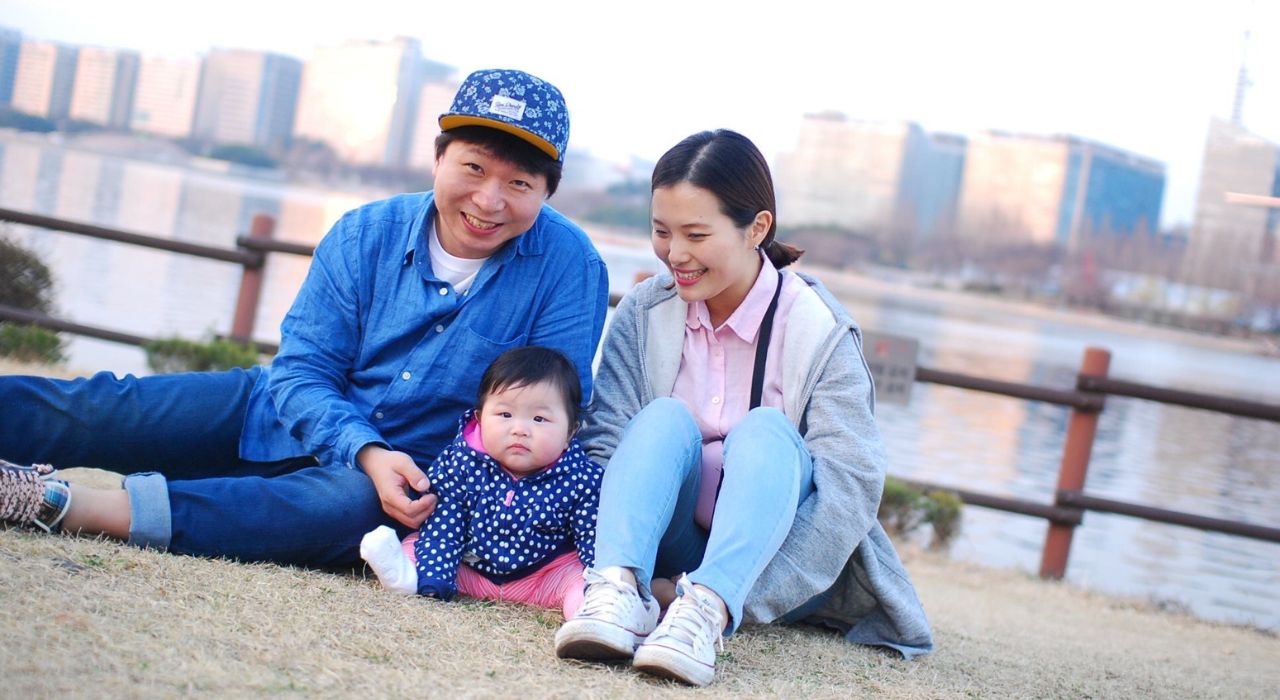If you’re of Korean descent, you might be wondering about the origins of your last name. After all, Korea has a long and rich history back thousands of years. And while many Korean last names have been around for centuries, others are relatively new. This blog post will look at the origins of some common Korean last names. We’ll also explore the meaning behind these names and how they reflect Korea’s unique culture and history. So if you’re curious about your Korean last name, read on!
Korean Name Origin
The majority of Korean last names have three characters. Like Chinese names, Korean names are also made up of surnames and given names. Surnames came first and were initially based on occupation, location, or clan association. The number of hanja characters used in a name varies, with the maximum being four. There are about 130 popular surnames in Korea today, with more than 50 people sharing that surname.
Interestingly, unlike most other countries, South Korea has no law dictating the order in which a person’s surname and given name should be written. It means that you will sometimes see people with their surname first and other times with their given name first. In addition, it is common to see people with multiple last names. If you are interested in learning more about Korean last names and their meanings, then check out this list of the most common surnames in South Korea.
Three Most Common Types of Korean Last Names
-
Chinese origin
The most common type of Korean last name is one of Chinese origin. Most Koreans have a surname that was originally written in Chinese characters. For example, the family name “Kim” (김) is derived from the Chinese character 金 (Jīn). Other common Chinese-origin surnames include “Lee” (이) and “Park” (박).
-
Native Korean origin
The second most common type of Korean surname is one of native Korean origin. These surnames are usually derived from the names of ancestral clans or Tribes. For example, the family name “Gimhae Kim” (김해 김) is derived from the Gimhae Kim clan. Other common native-origin surnames include “Jeong” (정), “Seo” (서), and “Yang” (양).
-
Mongolian or Manchu origin
The third type of Korean surname is of Mongolian or Manchu origin. These surnames were introduced to Korea by Mongolia or other parts of Northeast Asia during times of war or political upheaval. For example, the family name “Pae” (배) is derived from the Mongolian word for ‘boat.’
Top 20 Most Popular Korean Last Names

1) Lee
This is the most common Korean surname. It means “plum” and is derived from the Chinese characters for “plum” and “tree.” The Lee surname is said to have been adopted by a royal family in Korea during the reign of King Sejong (r. 1418-1450).
2) Kim
This surname means “gold” or “metal” and is derived from the Chinese character for “gold.” The Kim surname is said to have originated from a noble family in Korea during the time of King Gongmin (r. 1351-1374).
3) Park
This Korean surname means “cypress tree” and is derived from the Chinese characters for “cypress” and “tree.” The Park surname is said to have originated from a noble family in Korea during King Gongmin.
4) Choi
This Korean surname means “croft” or “small field” and is derived from the Chinese characters for “field” and “small.” The Choi surname is said to have originated from a noble family in Korea during the time of King Gongmin (r. 1351-1374)
5) Jeong
The Jeong surname comes from the Korean word “Jeong,” which means “affection” or “love.” The name was traditionally given to baby girls born during the spring when new life and love are fruitful. The Jeong surname is believed to have originated in the Gyeongju area of Korea. According to one legend, the Jeong clan was founded by a man named Kim Ali, who was born under a special star that made him unusually caring and loving.
Another legend says that the Jeong clan descended from a woman named Lady Jeonghye, who was known for her kind and compassionate heart. Whatever its origins, the Jeong surname is now one of the most common names in Korea. An estimated 1.5 million people with this last name live in South Korea today.
6) Kang
Kang is a common Korean surname and can be traced back to the Three Kingdoms period. It is thought to be derived from the Chinese characters for “river” or “stream” and was originally pronounced, “Gang.” The Kang surname is most commonly found in North and South Korea but has a significant company in other parts of Asia, including China, Japan, and Vietnam. There are an estimated 7 million people worldwide with the Kang surname.
The origins of the Kang surname are closely linked to the history of Korea. During the Three Kingdoms period, the kingdom of Goguryeo was ruled by a king named Gongmin. He married a woman named Naegyeong from a noble family surnamed Kang. After their marriage, Gongmin changed his surname to Kang, making it one of the first surnames in Korea. Since then, the Kang surname has been passed down through generations of Korean families. Today, it is one of the most common surnames in both North and South Korea.
7) Han
The Han people are the largest racial group in China and one of the oldest civilizations in the world. The Han name comes from the Chinese character 汉 (hàn), which means “Han Chinese.” The Han people have a long and rich history, and their name is drowned in tradition and meaning. There are many stories about the origins of the Han people. Whatever their origin, the Han people have played a central role in Chinese history and culture. The Han name carries great significance and pride for those who bear it.
8) Park
Korea has an estimated 300 last surnames, the three most common being Kim, Lee, and Park. Though these names have been around for centuries, their popularity has only increased in recent decades. Park is a much more modern name derived from the given name of its founder. It first became popular in the 20th century.
Though they may have different origins, all three of these names share one important characteristic: they are all highly associated with Korean identity. In a country where family ties are still strong, and many people place great importance on their ancestors, having a unique and meaningful surname is essential.
9) Jin
There are many different origins for Korean last names, but the most common one is that they are derived from Chinese characters. The meaning of a name can often be inferred from the characters used to write it. The character 仁 (Jin) can mean “generous” or “humane.” Therefore, a name like Jin would represent someone who is kind-hearted.
10) Seong
The Seong surname comes from the Korean word for “victory.” It is one of the most common surnames in Korea, accounting for about 4.5% of the population. The Seong clan originated in the Gyeongju area of ancient Korea. The Seong surname is often associated with success and good fortune. Historically, it has been held by many famous figures in Korean history, including General Yi Seong-gye (the founder of the Joseon Dynasty) and Admiral Yi Sun-sin (a legendary naval commander who defeated the Japanese fleet in the 1592 Imjin War).
11) Pung
The word “pung” (pronounced “poong”) is derived from the Chinese character 文, which means “literature” or “culture.” Historically, “pung” was used as a surname by students and nobility in Korea. There are two main theories regarding the origins of the pung surname. The first story says that the pung surname was originally granted to individuals who had passed the government exam during the Goryeo Dynasty (918-1392). The second story suggests that the pung surname was given to people born into noble families.
12) Nam
Nam is a surname of Korean origin, meaning “south” in the Sino-Korean language. It is the second most common surname in Korea, behind only Kim. According to the 2015 South Korean census data, there were over 6 million people with the Nam surname.
The Nam surname originated from Gyeongju, North Gyeongsang Province, during the Three Kingdoms period of Korean history (57 BCE – 668 CE). The clan’s founder was Nam Seon-Gil, who served as a minister under King Munmu of Silla (r. 661-681 CE). The king awarded the land of Namwon in present-day Jeollabuk-do Province for his service. Seon-gil’s descendants took on his surname and eventually founded their clan named after him.
13) Mae
Mae is a Korean surname from Chinese characters for “horse” or “field.” It is one of the most common surnames in Korea, and an estimated 1.5 million people have this surname in South Korea. In North Korea, it is also one of the most common surnames, but it is spelled as “May.” The Mae surname can be found in every province of Korea, but it is especially common in the Jeolla and Chungcheong regions.
There are several stories about the origins of the Mae surname. Mae’s surname was originally given to people who worked as horse trainers or breeders. Another story suggests that the Mae surname was given to people near fields or pastures. Mae is also a given name for girls in Korean. The meaning of Mae varies depending on the hanja used to write it. Some of the most common meanings include “flower,” “child of purity,” and “hope.”
14) Bin
This Korean surname, “Bin,” has a Chinese origin. This family name, “Bin” (김), is derived from the Chinese character 金 (Jīn), meaning “refined.” It’s also a Korean unisex given name which can be used for both boys and girls.
15) Kwak
The Kwak surname is derived from the Chinese character 苦, which means “bitter.” The character originally came from the state of Chu in ancient China. It is said that the first person to use this surname was Kung Fu, a minister of Chu who lived during the reign of King Zhuang of Chu (r. 613-591 BCE).
The Kwak surname is also found in Korea, pronounced as Gwak. The Korean character for Gwak is 곽, derived from the Chinese character 苦. The first person to use this surname in Korea was probably a nobleman named Gyeon Hwang during the Silla Dynasty (57 BCE-935 CE). The Kwak name can also be found in other countries, such as Vietnam and Japan. In Vietnam, the surname is spelled as Quách, while in Japan, it is read as Kaku.
16) Chang
As one of Korea’s most common last names, Chang is from ancient times. The change surname comes from a Chinese origin meaning “constant.” The Chang surname has multiple origins. Nowadays, it is used as a last name by more than 1millions of people. It is one of the most popular names in Korea.
17) Goe



18) Shin
The word “shin” in Korean means “new,” and the name was given to babies born in the year of the Snake or during the first month of the lunar calendar. It can also be written as 신, the hanja for “god.” The origin of shin as a surname is doubtful, but it is thought to be derived from either the Goguryeo Kingdom or a clan on Jeju Island. During the Joseon Dynasty, there were two clans with the shin surname: the Jeju Shin and the Kyonggi Shin. The Jeju Shin descended from exiles sent to Jeju Island during the Goryeo Dynasty, while the Kyonggi Shin claimed descent from Goguryeo royalty.
19) Seok
The meaning of Seok is “stone” or “rock.” The name originates from Korean words written with the same characters (石). Seok is one of the most common Korean surnames. According to a study conducted in 2000, it was the ninth most common surname in South Korea. As of 2014, there were approximately 1.4 million people with the surname Seok in South Korea, making up 2.8 percent of the population.
20) Kangjeon
Kangjeon is a Korean surname from Chinese characters for “river” and “field.” The name can also be written as Gongjin or Kwangjin. According to the 2000 South Korean census, there were about 33,000 people with the Kangjeon surname.
What are the Rules for Western Names in Korea?
There are no strict rules for Western names in Korea, but some guidelines are generally followed.
- When transliterating a Western name into Korean, the surname is usually written first, followed by the given name. For example, the name “John Smith” would be written as “Smith John” in Korean.
- It is also common to include the person’s title along with their name. For example, if Mr. Smith were a doctor, his name would be written as “Dr. Smith John” in Korean.
- When writing a Western name in Hangul (the Korean alphabet), it is important to use the correct characters for each sound. For example, the letter “J” is pronounced differently than “G” in English, so it should be written with a different Hangul character. The same goes for letters like “V” and “B.”
- If you need help writing a particular letter or sound in Hangul, you can consult a guide or ask someone familiar with the language.
Conclusion
When it comes to Korean last names, there are a few things you should know:
- Most Korean last names are two-syllable compounds.
- How these names are structured can tell you a lot about the family’s history and status.
- Many of these names have beautiful meanings behind them.
Korean last names have a rich history and cultural value. They serve as a symbol of identity and origin, often reflecting their origin’s traditions, beliefs, and geography. The commonality of a small number of last names in Korea is due to the influence of Confucianism, where a strict paternal system was observed. Despite this, there has been a recent trend towards individuals changing their last names for personal or creative reasons. The unique characteristics of Korean last names provide insight into the country’s cultural heritage and are an important part of Korean identity. We encourage you to research the subject further if you’re interested in learning more about Korean last names.











